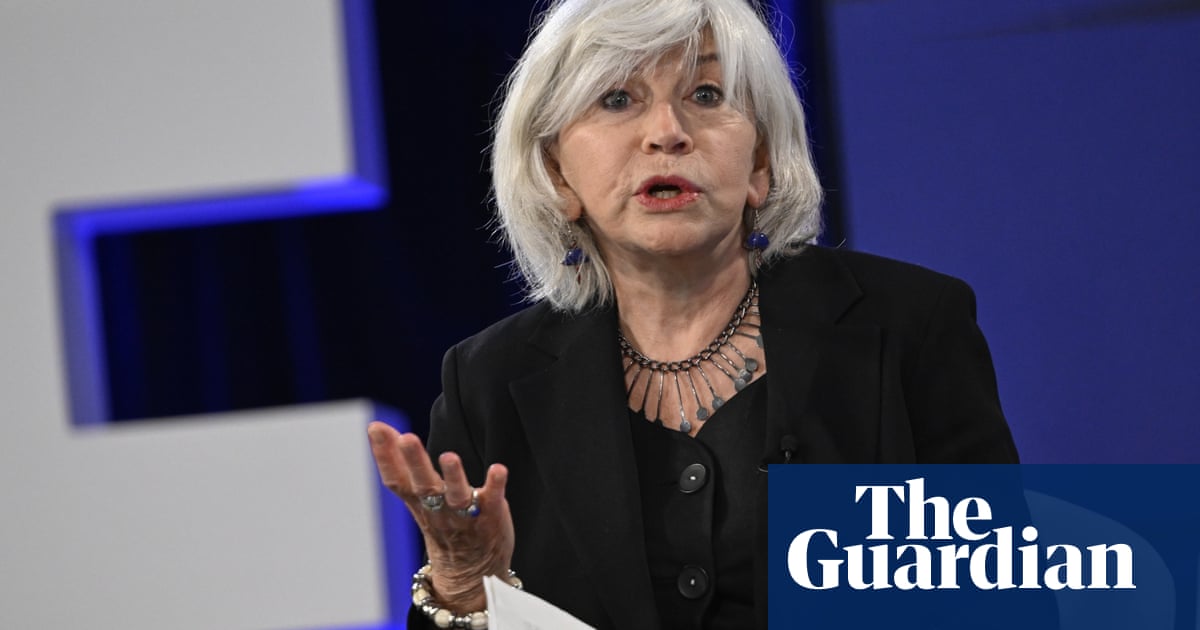Rich individuals in all countries must pay more to tackle the climate crisis, whether through taxes or charges on consumption, one of the architects of the Paris agreement has said.
There is a growing consensus on the need for some kind of global wealth tax, with Brazil, which will host the Cop climate summit next year, an enthusiastic supporter.
Meanwhile, poor countries are struggling to raise the estimated $1tn (£785bn) a year of external finance needed to help them cut emissions and cope with the impacts of the climate crisis.
Another proposal is for a frequent flyer levy, as the richest people tend to take far more flights – in any year about half of the people in the UK do not fly, for instance. Laurence Tubiana, the chief executive of the European Climate Foundation, said a levy could be targeted at business class and first class seats.
Other possible sources of revenue include a carbon tax on international shipping, which could raise billions without disrupting global trade, according to research from the World Bank. Levies on fossil fuels could also play a role.
The richest 1% of people in the world are responsible for more greenhouse gas emissions than the 66% at the other end of the scale, yet they experience little of the vulnerability to climate shocks that are causing suffering and death, mainly among poorer people.
Tubiana said: “This inequality is true not only between developed countries and developing ones, but within each country – the 1% of rich Chinese, or the 1% of very rich Indians, or the US citizen – they have a lifestyle which is very, very similar, in terms of overconsumption. That’s where your carbon footprint comes in.”
Failing to address these inequalities could damage public acceptance of the measures needed to tackle the climate crisis, she said in an interview with the Guardian. “If you want to avoid a real conflict, we have to put the social justice element upfront. It’s legitimate to talk about taxation, with the immense elements of climate impact, and the need to mobilise more funding to respond to the transition [to a low-carbon economy] and adaptation [to the impacts of extreme weather].”
Tubiana is co-chair of the International Tax Task Force (ITTF), an initiative spearheaded by the governments of Barbados, France and Kenya, and set up at last year’s UN climate summit, to examine ideas for raising the sums needed.
Climate finance will be the key focus of this year’s UN climate summit, Cop29, in Azerbaijan. Government representatives were gathering on Monday in Bonn, Germany, where the UN framework convention on climate change secretariat is based, for a fortnight of preliminary talks, where officials will test the waters for some of the key proposals.
Although there is no clear agreement on the way forward, Tubiana said there was widespread acknowledgment among governments that new ways must be found. “At the G20 meetings, there was quite a consensus on, yes, we should do better, we have to reform our tax system,” she said.
Discussing revenue raising under the Paris climate agreement will be tricky, however. Governments are particularly touchy about national sovereignty when it comes to taxation.
after newsletter promotion
One of the first tasks of the ITTF will be to come up with a new name. The term tax is inaccurate for some of the ideas under discussion, and could be a hindrance, as it is highly loaded and has specific legal resonance in some countries – the US, for instance, has rules over tax negotiations in an international context.
Tubiana said she hoped the very rich would cooperate with governments on paying for the climate crisis. “I’m optimistic that some of them can speak up, in particular the younger generation,” she said. “But we have to convince them as well.”
While most of the discussion at Cop29, and in Bonn, will focus on how to raise the money needed, but questions over how it should be spent also need to be resolved.
While the poorest countries have a clear claim, that should not be the only criterion, said Patricia Scotland, the director general of the Commonwealth, which represents many developing countries. She said many small island developing states that were particularly at risk from the climate crisis were already in debt, and needed help with debt forgiveness or restructuring. And there were some that appeared to be better off, with growing GDP or thriving economies, which may not meet the usual criteria for aid but when a climate-related disaster struck, they could be devastated and left in dire need of assistance.
Lady Scotland called for a “universal vulnerability index” to take account of this. “It would really take into account the exogenous shocks to which countries will be subject.”
She added that the climate crisis had rewritten the old standards by which countries were judged, and countries were being penalised for problems they had not created. “In the old days, they were talking about fiscal rectitude, that GDP was an indicator of your ability, your acuity, your good management of your income and being able to budget. It was all about your prudence. What we now know is it is not necessarily about fiscal prudence, it is your inability – or anybody’s inability, really – to manage the exogenous shocks.”

